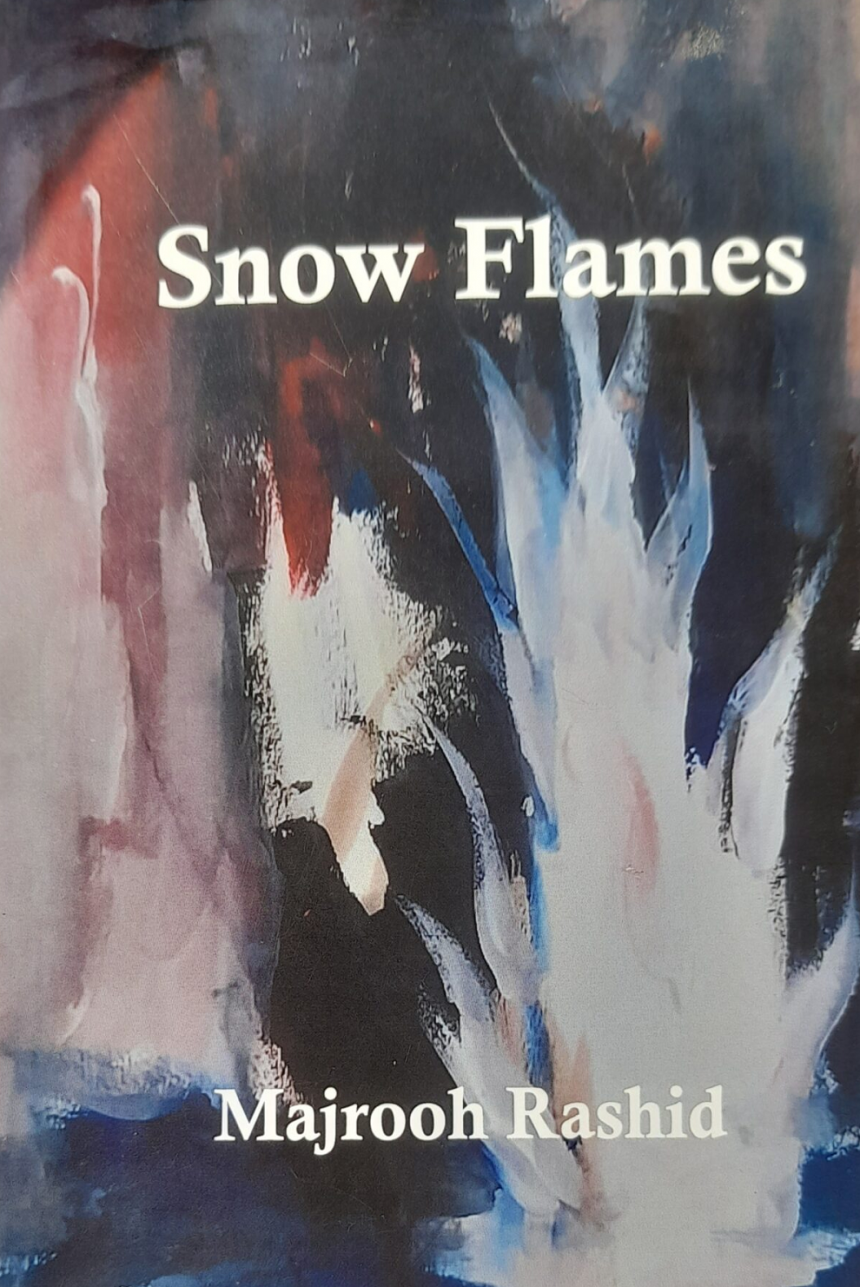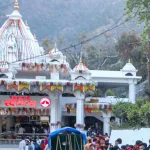BOOK REVIEW
We are stepping into a lyrical realm of metaphors, reflections, and revelations. Snow Flames is not merely a compilation of poems; it is a contemplative voyage through the intricate landscapes of emotion — from anguish to nostalgia, from childhood vignettes to the shifting tides of society and nature. At the heart of this collection lies a singular, enigmatic motif — the snow flame. Paradoxical and poetic, this flame does not scorch; it shivers.
Like Virginia Woolf’s “moments of being,” it flickers across memory — frozen yet alive, elusive yet ever-present. It echoes the “still point of the turning world” from T. S. Eliot’s Four Quartets, symbolizing a timeless axis around which emotion and thought quietly revolve. Much like Rilke’s “flame that has no name,” it burns not in fury but in introspection.
This flame is a symbol both universal and intensely personal — a quiet sentinel that guides the reader through an anthology shaped by longing, displacement and fragile hope. Its movement through the verses evokes Basho’s meditative haiku path and Neruda’s residencias, drawing the reader into an inner geography where silence becomes speech, and the intangible becomes vividly felt.
The journey begins with the evocative poem “Solitary Lamp”, where a lone flicker weeps in solitude — a delicate metaphor for the poet’s internal sorrow. As we progress, we realize this flame — often immobilized by the weight of the poet’s contemplation — never extinguishes. It endures as a glowing ember of experience and perception.
Prof. Majrooh Rashid extends an invitation to us — “Passing through the narrow lanes of the long street of my memory” — a line that sets the stage for the entire collection. It beckons us to witness how recollections evolve into muses and mirrors, offering both inspiration for the poet and an immersive aesthetic for the reader.
In “Road to Light”, the snow flame becomes a guiding path — emerging from a fire burning beneath the fertile darkness. In “Frozen Dream”, it shifts again — “a silhouette of the last meet” — ethereal, tender, and deeply resonant.
These poems do not simply narrate; they resonate, they linger, they illuminate. The imagery is masterful — each metaphor a window, each symbol a key.
In “The Heart’s Cold Night”, we read:
“All my sunny, brilliant memories of you got stuck in the thick layers of ice gathered there over the years.”
Here, warmth becomes memory — suspended, encased in the frost of time.
The tender lines of “Snowfall” echo quietly:
“In the meantime, you passed by and ruffled my hair once again. The ice was melting on my lashes.”
A simple gesture unfreezes emotion. The snow flame finds refuge not in the wilderness but within the human spirit.
In “It Snowed Last Night”, the snow flame becomes a cry — an invocation to the Himalayas and the Zabarwan Hills, binding nature and emotion in one sublime sweep. It reminds us that pain transcends all borders — it belongs to no nation, no caste, no creed.
In “Last Night”, the frost returns with force:
“The moon and the stars froze in the lake of the sky.”
This hypnotic image draws us into a whirlpool of snow flame — a realm of imagination, layered and luminous.
And when we reach “Stardust”, the poet confesses:
“Because of the ardent fire burning in your eyes, thousands of my poems went up in smoke.”
A powerful acknowledgment of inspiration — fiery, consuming, sacred.
Even the sun, the very emblem of warmth, is not immune. In “To Sunshine”, the poet mourns:
“Warm-hearted sunshine, you too turned faithless, left me alone in this freezing ice field of the dark.”
A chilling betrayal, where even radiance succumbs to frost.
As we continue to delve deeper into this remarkable collection, one cannot overlook the poem “Typo”. It is here that the snow flame turns its gaze inward — and we, the readers, are invited to witness a moment of profound self-reflection. The chill in this poem is not just physical — it is philosophical, almost bone-breaking in its emotional intensity.
Majrooh Rashid writes:
“Many a time I asked myself who I was?”
— a question that reverberates through the verses like a haunting echo.
He continues:
“Though you are a correct compound sentence, there is a prominent typo that blurs your meaning. If only someone had edited you.”
What a brilliant metaphor — equating the self to a grammatically correct sentence marred by an invisible flaw, a typo that alters its essence. It is a quiet revelation — we all carry within us a chill, a flaw, a blur, waiting to be understood or revised. The flame here is introspective, forcing us to confront our fragmented reflections.
Adding yet another luminous facet to this anthology is the heartfelt tribute entitled “To Tagore”. Dedicated to none other than the revered Rabindranath Tagore — the bard lovingly known as “Dear to All the Muses” — this poem reflects the sincerity and humility of Majrooh Rashid’s poetic soul.
He writes:
“Oh Master Craftsman, you have given shape to my chaotic thoughts with your orderly woven imagery.”
In this single line, the poet lays bare his gratitude and reverence, offering his verses not as mere praise, but as a testimony to his own poetic evolution. It is this honesty, this reverent humility, that makes Snow Flames not just a literary endeavor, but a deeply moving experience — both for the poet and for us, his readers.
Snow Flames is not just literature — it is an immersive experience. A cascade of metaphors, a gallery of emotions. Each poem deepens the mystery; each symbol draws us further into the orbit of the poet’s inner cosmos. Much like Rimbaud’s “alchemy of the word,” Rashid transforms the raw ore of memory and emotion into glimmering verse, where pain becomes beauty and silence speaks.
This collection evokes the quiet intensity of Anna Akhmatova’s elegies and the delicate ephemerality of Emily Dickinson’s frostbitten metaphors — poetry that pulses with restraint yet brims with depth. The snow flame, paradoxical and arresting, recalls the mystical paradoxes of Sufi poets like Rumi, where burning is purification and coldness, a kind of grace.
So today, let us celebrate this luminous addition to the world of poetry.
Let us embrace the chill, the ache, the fragile beauty of these flames. And above all, let us honor prof. Majrooh Rashid — the bard who has dared to turn his inner fire into snow, and in doing so, has given us all a reason to feel, to reflect, and to remember. Like Lorca’s duende, his poems do not simply speak — they tremble, they ache, they live.
(Author is a novelist and short story writer)








